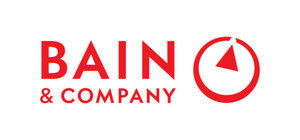
New research from Bain & Company shows young gamers are spending more time and money in the metaverse, paving the way for the future of entertainment
BOSTON, July 26, 2022 /PRNewswire/ -- Video games are now the first choice of entertainment for people ages 13 to 17—ranking above social media, TV, music or any other form of media—according to a new study by Bain & Company. These young gamers—from the US to Brazil and China to Japan—are currently spending more time and money in the metaverse than older gamers, and they expect to increase the amount of time they spend there in the future.
"There has been a lot of buzz, and plenty of confusion, among the business community on what the metaverse is and how it will shift commerce and life into the digital realm," said Andre James, Global Head of Bain & Company's Media & Entertainment Practice. "Meanwhile, young gamers have been paving the future of the metaverse. They have adopted to metaverse-style games, often preferring to socialize with friends in games more than in person. They are increasingly comfortable with virtual reality, so even those that don't currently play in the metaverse are likely to do so in the future."
Younger games are most drawn to metaverse games that are fully immersive and social, include the ability for players to be active creators in the game, offer in-game purchases and are available on any device. Additionally, half of young gamers prefer to spend time with their friends in games over hanging out in-person. This is just one example of how gamers' preferences are changing as the delineation between digital and real-world experiences recedes, and video games become the foundation for a far broader collection of entertainment experiences.
The rise of new payment models, like monthly subscriptions to game libraries, and the adoption of "free-to-play" games has led to improved average revenue per user. This trend is likely to accelerate as video games become the foundation for other paid entertainment experiences. However, metaverse companies will need to cater to the preferences of different demographics. For example, 56% of younger gamers said they were comfortable paying to unlock features that improve their performance in a game, while many older players were not. Bain's research also found younger gamers are more likely to play online games to compete with friends, family and strangers, compared with adult gamers who tend to play for fun and are more likely to play solo.
The increasing interest in the metaverse is consistent for the young gamers' preferences in and out of gaming. About half of younger gamers said they would rather attend school events in the metaverse, and half said they would rather play with their friends online than in person. Social experiences in game spaces lay the foundation for other online activities, such as concerts, sporting events and other aspects of life, including work and commerce. We will likely see this growing demand for community experiences as a catalyst for a broader metaverse.
Bain's research indicates that although there are some differences between younger gamer motivations and preferences across geographies, similarities are growing leading to more opportunity for global success. In order to maximize potential, developers and publishers will need to continue to listen to preferences from young gamers. This will include building fun and immersive experiences that are social, multiplatform and customizable. Long-term player engagement will be dominated by games that can scale and have a world and community that exists beyond the initial video game.
The frenzied M&A activity that defined the first half of 2022 in the gaming industry may be only the beginning. Experience from other media industries suggests that more consolidation is likely.
Additionally, game developers compete with other tech companies for top coding talent, but Bain's research of salaries shows game companies pay less than competitors. To deliver the top-tier metaverse content that younger gamers crave, gaming companies will need to adapt their talent strategies so they can attract and retain the right people. We will see this through traditional above-market compensation and benefits as well as providing opportunities to work at companies that are more virtual, less hierarchical, leaner and more agile.
Editor's Note: For more information or interview requests please contact, Katie Ware at [email protected] or tel. +1 646 562 8102.
About Bain & Company
Bain & Company is a global consultancy that helps the world's most ambitious change makers define the future.
Across 65 cities in 40 countries, we work alongside our clients as one team with a shared ambition to achieve extraordinary results, outperform the competition, and redefine industries. We complement our tailored, integrated expertise with a vibrant ecosystem of digital innovators to deliver better, faster, and more enduring outcomes. Our 10-year commitment to invest more than $1 billion in pro bono services brings our talent, expertise, and insight to organizations tackling today's urgent challenges in education, racial equity, social justice, economic development, and the environment. We earned a gold rating from EcoVadis, the leading platform for environmental, social, and ethical performance ratings for global supply chains, putting us in the top 2% of all companies. Since our founding in 1973, we have measured our success by the success of our clients, and we proudly maintain the highest level of client advocacy in the industry.
SOURCE Bain & Company






Share this article